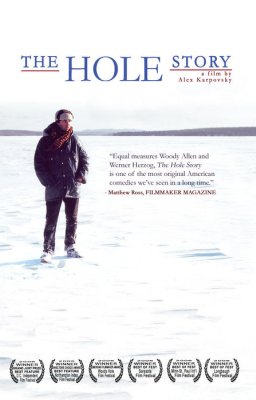


This brings us to the top-of-the-line useless mustache- Earl Hickey. The mustache itself was great, thick and a good percentage of the face. But Earl was more a maypole of the show where a bunch of more colorful characters danced around. His mustache was a mere decoration on a character who routinely didn't live up to his mustache's hype. We are to believe Earl grew his mustache out out of some type of kitsch value- not because of any strength of character, but because it'd be Jason Lee without it. The better mustache on the show was that of Darnell aka The Crabman, whose mustache was enhanced by his relaxed attitude and specific rules the writer's laid out for him.
That leads us to what makes a good mustache. A mustache works best when it simply takes a backseat to the heightened reality a character creates for himself. Simplified: the mustache doesn't define the character. Simplifiedier: The mustaches makes sense. There is no second guessing having hair between that person's lip and nose.

Meathead had a good mustache. He was a young idealist who went walrus on his facial hair to show his quirky sensibility. Were Magnum P.I. emblazoned a generation of TV watchers with his, Meathead reflected the sensibility with his. The writing for his character gets a lot of the credit here, as Michael Stivic was an agnostic, scholar, good husband, and foil to the cranky Archie Bunker. He is much more than a mustache, however all the traits that make his mustache good (young idealist, shaping, being berated)- hold it back from being a great mustache.
This week at Dumb Reviews, we will look at truly great mustaches. To help answer the question of what is a GREAT mustache, let's look at a case close to being great: Al Boreland.

The obvious: it is not a mustache. It is a beard, which totally disqualifies the man from disscussion. Further more, the beard is another metaphor for the broader strokes that came to really define the character. Even so- this was a really defined character, who never broke from the person the writers laid out for him to be. Overtly nice guy, who out shined the grunting man vestige of Tim Allen's Tim Taylor, personally displayed sensitivity, had a catch phrase, and generally felt had many more weird character quirks that (if not greater than) were equal to his beard.
Which brings us to a golden rule of greatness: Mustaches and the man act as one.
For further TV mustache triviality
Alex Trebek - champion of the mustache of the intelligent man for so long, but disappointingly ruined his own legacy by shaving it off. Never have trivia and facial hair ever been in more harmony.
Aldo Goldolfus - the show 'Number 96' was not only ahead of it's time with gay characters on TV, but totally in tune with the tradition of having a foreign character having a thick mustache to distinguish he is foreign.
Everyone on Deadwood - Really great depiction of a time when men grew mustaches to establish their greatness. Too many to declare one truly great, as these mustaches were a product of their time as well. Still- just remarkable mustaches.
Gomez Addams - If there were a prize for artistic mustache, or avant-stache-garde, here's were we would see it. Gomez is a fully realized character with a bounty of quirks and mental intricacies that it makes me wonder- why does he have a mustache? It works though. He's the Captain Beefheart, the Seventh Seal, the Van Gogh of television mustache.
Judge Joe Brown - a power mustache. I think his TV show would be nothing without his mustache distinction. Therefore I imagine a Judge Joe Brown mustache team that preps it and rubs it with aloe vera before each taping.




